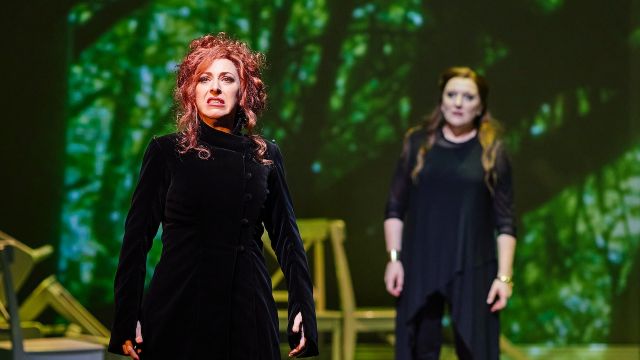Idomeneo
Idomeneo was the first grand opera composed by Mozart at the age of 24 and is also believed the be one of the last written for a principal singer who was castrated.
The supply of male singers (who had made the prescribed sacrifice as children) was drying up and so the high-pitched leading role of Idamante was adapted by Mozart for a tenor, and these days is played by a mezzo-soprano.
This part is only one of the challenges of the opera, which has a sweeping story involving Greek Gods, a huge storm, a sea monster and the booming presence of King Neptune.
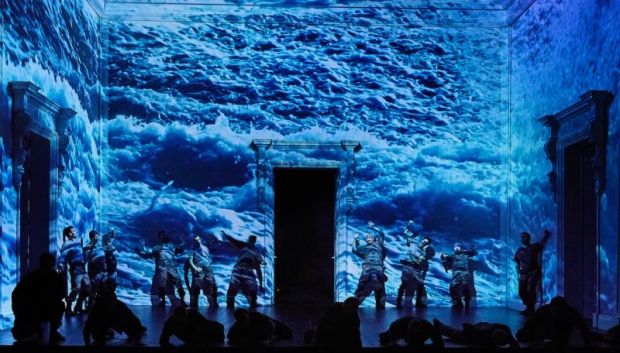
Director Lindy Hume set the production in a tall classical room with projections filling the walls to illustrate the drama. It took a little getting used to, as the cast was dressed in contemporary clothes and the military garb more reminiscent of World War II than ancient Greece.
The action is set in the aftermath of the fall of Troy, with the traumatized children of the slain Trojan King Priam and Greek King Agamemnon as central characters.
Even so, Act One is on the slow side, but there was relief from lengthy arias when the excellent chorus entered the fray. They sat down in a row of chairs on a majestic revolve.
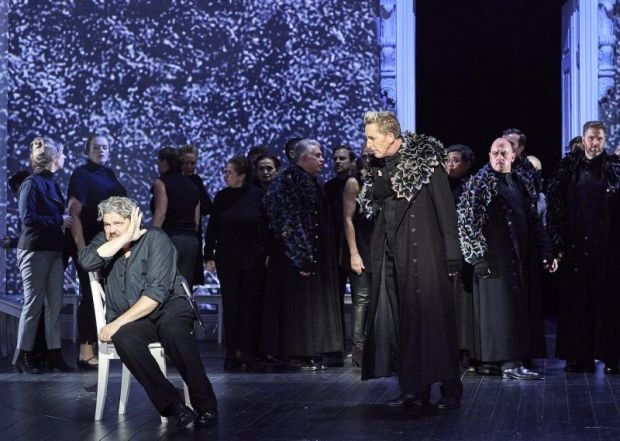
Into the centre of this symmetry marched their flamboyant leader Idomeno (Michael Schade) who they had thought was lost at sea, but instead had been saved from drowning by King Neptune on the basis that when he reaches land he must kill the first living creature he meets.
He flamboyantly strutted around the stage distracted by the fact that to fulfill Neptune’s demand he must sacrifice his own son who had been ruling his kingdom in his absence.
After interval the story is more engaging and blended more clearly with the brooding video projection.
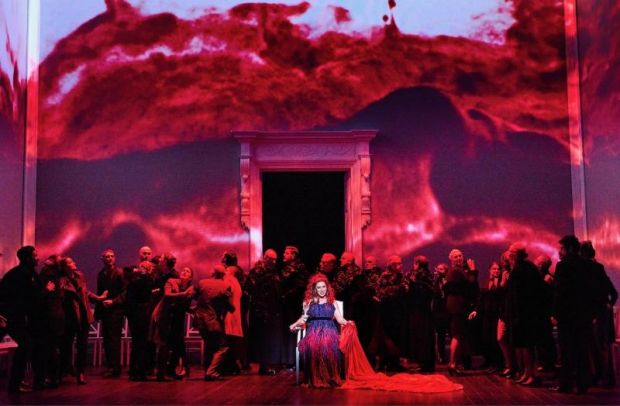
The trials of a father under an order to sacrifice a son has a biblical resonance and in the program notes Director Lindy Hume referenced Mozart’s own relationship with his father as an influence on the opera.
Whilst there are no blockbuster hit arias, the music is sumptuous and spectacularly performed under the baton of Johannes Fritzsch.
A highlight is the sublime love duet ‘Sio non moro a questi accenti’, where both women Idamante (Caitlin Hulcup) and Ilia (Celeste Lazarenko) sing like matching butterflies in the same voice-range.
Let love speak!
Ah, our joy banishes
the cruel torments we have suffered;
our love is all‑conquering.
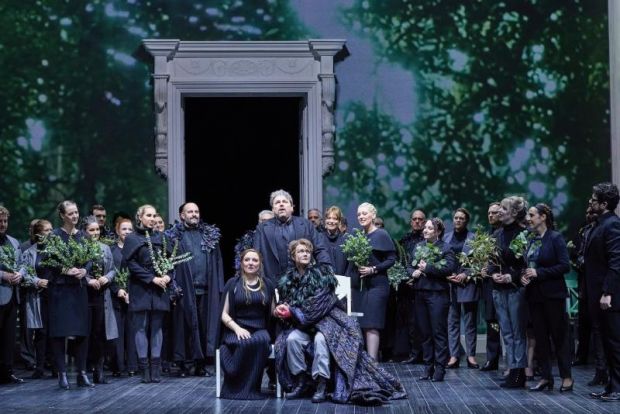
Also drawing an ovation from the audience on opening night was Emma Pearson’s rendition of “D'oreste, d'ajace”, a tortured aria of despair at seeing her love in the arms of another.
Tear apart my heart, horned snakes, serpents or a sword will end the pain in me.
But after all the drama and torment the opera ends on a note of optimism. A beautiful couple rule as a gift from heaven.
David Spicer
Photographer: Keith Saunders
Subscribe to our E-Newsletter, buy our latest print edition or find a Performing Arts book at Book Nook.

